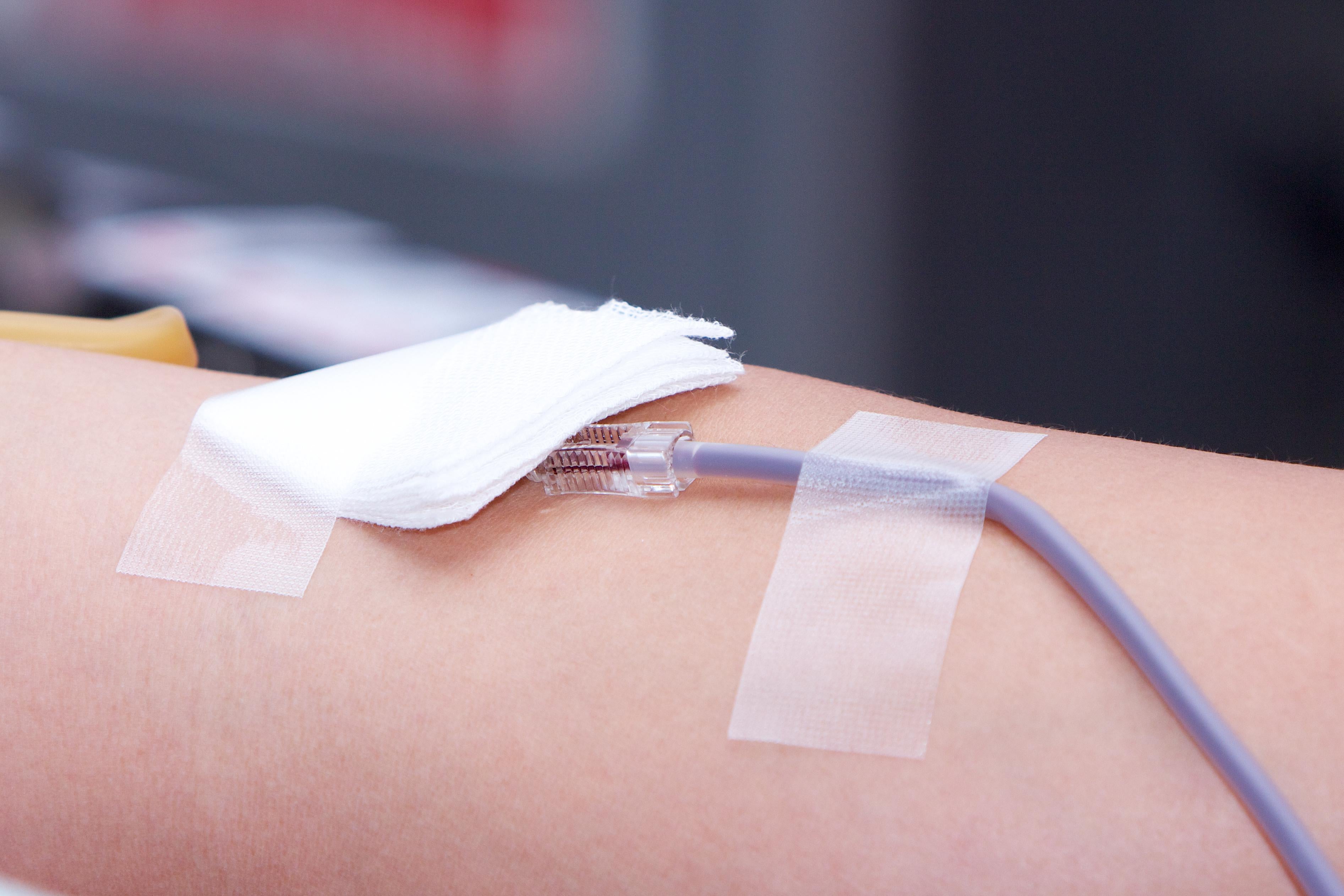On Thursday, the U.S. Health and Human Services’ Advisory Committee on Blood and Tissue Safety and Availability voted 16–2 to alter the current ban on gay blood donation. Currently, any man who has ever had sexual contact with another man—“even once”—is barred for life from donating blood. Under the committee’s new proposal, men would be permitted to donate blood as long as they haven’t had sex with another man for at least one year. The Food and Drug Administration, which officially sets donation guidelines, isn’t required to adopt the committee’s proposals, but it’s considered likely to do so.
The committee is touting the proposed rule as a huge improvement over the old guidelines. It’s not. It’s an embarrassment. In the era of fast, precise HIV tests, the gay blood ban is fundamentally unscientific and counterproductive—just ask the American Red Cross, America’s Blood Centers, and the American Association of Blood Banks, all of which oppose it. (So does the American Medical Association, which describes it as “discriminatory and not based on sound science.”) The ban arose in 1983, when scientists were still exploring the rudiments of HIV testing; today, when HIV can be detected within days or weeks at most, it’s perpetuated only by animus and paranoia.
To understand just how irrational the FDA’s ban is—and just how disturbed the FDA is by gay blood—consider its other, utterly inconsistent policies. A straight person who had sex with a prostitute or used IV drugs can give blood one year later. So, too, can a straight person who had sex with an HIV-positive opposite-sex partner. Straight people who enjoy frequent unprotected sex with a rotating cast of anonymous partners? No waiting period at all. A gay man in a decadeslong monogamous relationship, however, is currently barred for life. Under the new rule, gay men would be placed in the same category as drug users and once-a-year prostitute enthusiasts. They could donate blood so long as they haven’t had sex in a year—even if it’s with their husband.
Why institute this absurd half-measure? I suspect the HHS and the FDA are starting to feel the heat from medical groups like the Red Cross, which, thanks to the ban, are missing out on an additional 615,300 pints of blood each year. In theory, any shift from the current draconian rule should be welcome. But the new proposal is rooted in the exact same gay panic that has kept the old rule alive up to now. If the FDA is really committed to turning away groups of people who are statistically more likely to have HIV, they should at least start discriminating more consistently. Black people, for instance, have a much higher infection rate than whites; shouldn’t they be barred from donating blood? And non-monogamous straight people obviously risk greater exposure to HIV; shouldn’t the FDA copy South Africa and start blocking heterosexuals who’ve had a new sex partner in the previous six months?
There is, of course, another solution here: The FDA could listen to the scientific and medical communities and start evaluating potential donors individually, abandoning the anti-gay biases that got them into this mess in the first place. Expanding the donor pool to celibate gay men still sends the message that gay blood is inferior, gay sex is dangerous, and gay men are diseased. Few, if any, celibate gay men will line up to donate, repulsed, no doubt, by the insulting and offensive oath they’ll be forced to sign. The FDA can only remedy its decades of pointless stigmatization by lifting the ban altogether. Anything less is just a face-saving cop out.
